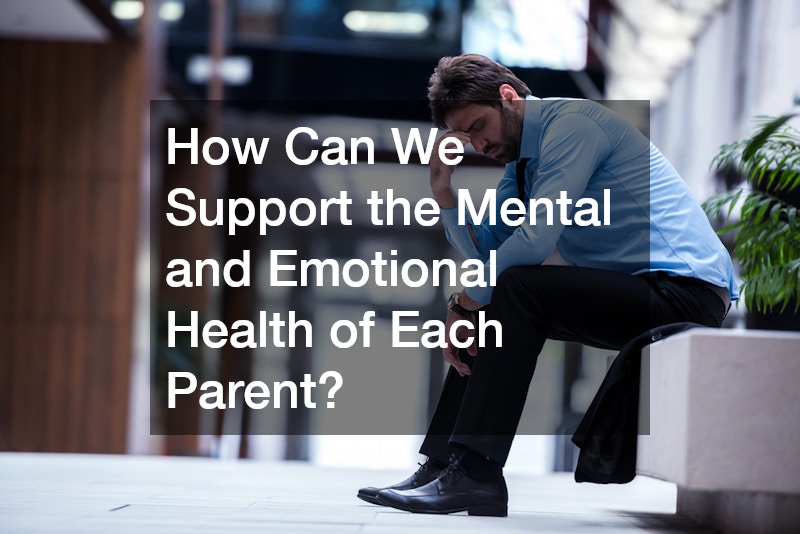Preparing for parenthood can be an exciting yet daunting journey. With countless questions and decisions ahead, soon to be parents often feel both joy and overwhelm. It’s a time when expectant parents gather as much information as possible to ensure they’re fully prepared for the many responsibilities, choices, and transformations to come. This article outlines ten critical considerations for soon to be parents to guide them through some of the most common questions they face, from healthcare to finances to relationship preparation. By proactively planning for these changes, new parents can feel empowered to navigate this remarkable and life-changing stage.
1. How Can We Best Prepare for the Arrival of Our Baby?
Welcoming a new baby brings many changes to a family’s routine, space, and priorities. For soon to be parents, there’s a lot to consider to make this transition as smooth as possible.
1.1 Creating a Birth Plan
A birth plan can help parents feel more prepared by providing a structured guide for labor, delivery, and immediate postpartum care. Many soon to be parents work with their doctors or midwives to make sure they understand their options and preferences. Some parents also seek advice from chiropractors, as chiropractic care during pregnancy is known to offer comfort and support.
1.2 Gathering Necessary Baby Supplies
Soon to be parents should start gathering baby supplies early, from essentials like car seats and cribs to less obvious items, such as baby first aid kits or soothing music. Preparing these items helps parents feel ready and reduces last-minute stress.
1.3 Childproofing Your Home
A crucial step to ensure baby’s safety is childproofing the home, which includes securing heavy furniture, covering outlets, and installing baby gates. Parents-to-be may even consider consulting safety professionals or their primary care service provider for additional tips to childproof effectively.
1.4 Understanding Parental Leave Policies
Parental leave can vary widely depending on the employer and local laws. Soon to be parents should consult with their human resources department to understand their options, including whether they’re eligible for paternity, maternity, or family leave, as well as the flexibility to take unpaid leave if needed.
1.5 Emotional Preparedness for Parenthood
Preparing emotionally for the responsibilities of parenthood is essential. Soon to be parents are encouraged to talk openly about their hopes, fears, and expectations. Some find it helpful to join parenting classes or recreational programs designed for expectant parents, which can provide a supportive space to connect with others on a similar journey.
2. What Financial Considerations Should Soon to Be Parents Keep in Mind?
Financial preparation is one of the cornerstones of getting ready for a baby. Soon to be parents can gain peace of mind by considering costs for healthcare, childcare, and unexpected expenses.

2.1 Budgeting for a New Family Member
It’s vital for soon to be parents to consider new monthly expenses, such as diapers, formula, and possibly infant child care. It’s also wise to set up a budget for occasional expenses, such as baby gear and clothing as the child grows.
2.2 Healthcare and Insurance Plans
Medical costs for infants can add up quickly, so expectant parents should confirm what their health insurance covers. From regular pediatric check-ups to any specialist visits—such as urgent care for unexpected illnesses or consultations for pediatric dentistry—it’s important to understand coverage limits and co-payments.
2.3 Tax Benefits and Implications
For parents-to-be, there are also tax benefits to research, such as child tax credits and deductions for childcare expenses. Speaking to a tax professional can be especially useful in navigating these benefits.
2.4 Savings and Emergency Funds
Setting up a solid emergency fund provides a safety net for unexpected expenses, like urgent care visits or unplanned dental emergencies. Financial advisors often recommend that soon to be parents start with three to six months of living expenses saved up.
2.5 Long-term Financial Planning
Soon to be parents may want to consider long-term financial planning, such as saving for college or other educational expenses. Some also look into life insurance or retirement planning to ensure financial security for the family.
3. How Do We Choose the Right Healthcare Providers?
Healthcare providers play a major role in supporting a healthy pregnancy and child. Soon to be parents will need a network of reliable and caring professionals to guide them along the way.
3.1 Selecting an Obstetrician or Midwife
Soon to be parents will need to select a healthcare professional who specializes in pregnancy, such as an obstetrician or a midwife. In some cases, chiropractic care can be a valuable addition for pregnancy-related discomfort, and many chiropractors work with expecting mothers to support their wellness.
3.2 Choosing a Pediatrician
Selecting the right pediatrician is essential, as this doctor will monitor and support a baby’s health and development. When evaluating options, soon to be parents should consider pediatricians within their network and ensure they have access to other specialties if needed, like pediatric dentistry.
3.3 Understanding Health Care Options for Newborns
Understanding newborn healthcare services, such as wellness visits, immunizations, and screenings, can prepare soon to be parents for their baby’s medical needs. It’s a good idea to check what’s included in the plan to anticipate potential out-of-pocket expenses.
3.4 Evaluating Maternity and Pediatric Facilities
Soon to be parents should also evaluate nearby maternity and pediatric facilities. It may be helpful to visit different hospitals to see which best aligns with their values and comfort level. Having nearby urgent care facilities is also an asset in case of unexpected medical issues.
3.5 Building a Support Network of Health Professionals
Alongside pediatricians, families may benefit from knowing other healthcare providers such as those specializing in orthopedic care, such as bone and muscle health, should the need arise. This can be useful as a child begins exploring physically, to monitor any growth or development concerns.
4. What Are the Essential Newborn Care Skills We Need to Learn?
There’s much to learn when it comes to newborn care, but acquiring these skills helps parents feel more confident in caring for their baby.
4.1 Feeding and Nutrition for Newborns
Nutrition is one of the biggest considerations in newborn care. New parents should explore their options between breastfeeding, formula feeding, and the transition to solid foods.
4.2 Sleep Training and Schedules
Establishing a sleep schedule is a cornerstone of infant care. Soon to be parents may also want to learn about different methods of sleep training, which can help create a routine that benefits both baby and parents.
4.3 Diapering and Bathing Basics
Diapering and bathing a newborn takes practice. Soon to be parents can learn these skills from family, friends, or parenting classes.
4.4 Recognizing Newborn Health and Safety Signals
Understanding a newborn’s cues is crucial for timely care. Knowing when symptoms warrant a call to the doctor or a visit to urgent care helps new parents keep their infant safe.
4.5 Bonding and Developmental Activities
Bonding can be enhanced through gentle activities like baby massages, skin-to-skin contact, and even structured recreational programs. These early interactions support healthy emotional and social development.
5. How Can We Prepare Our Relationship for Parenthood?
Parenthood brings new dynamics to any relationship. Soon to be parents can benefit from proactively discussing how to maintain a supportive and communicative partnership.

5.1 Communicating Effectively as a Couple
Open communication can strengthen the relationship during the transition to parenthood. Discussing expectations and potential challenges can set a strong foundation.
5.2 Balancing Parenting Roles and Responsibilities
Discussing and delegating responsibilities before the baby arrives can prevent misunderstandings and make daily routines smoother.
5.3 Maintaining Intimacy and Partnership
Keeping a connection with your partner is important. Many soon to be parents schedule regular date nights or explore recreational programs they can enjoy together to foster their bond.
5.4 Managing Stress and Conflict
Stress is inevitable, so having strategies in place to manage it is crucial. Couples can try mindfulness techniques, such as breathing exercise, getting botox, or seeking professional support if needed.
5.5 Seeking Support and Counseling
Seeking counseling or joining parenting groups can provide emotional support and help new parents learn how to navigate this new chapter.
6. What Are the Best Childcare Options for Soon to Be Parents?
Childcare decisions are an important part of preparing for parenthood. Understanding options in advance helps parents find the best fit for their family.
6.1 Evaluating Daycare and Nanny Options
Parents should research local daycare centers, nannies, and even infant child care facilities to see which best suits their schedule, budget, and preferences.
6.2 Considering Family and Community Support
In addition to formal childcare options, family members or friends can sometimes offer support, which can be invaluable. Many families also consider summer camp programs in the future to enrich their child’s social and physical development.
6.3 Understanding Childcare Costs and Subsidies
Childcare costs can vary significantly, and there are subsidies and financial aid programs available in many areas to assist parents with these expenses.
6.4 Balancing Work and Family Life
Soon to be parents may want to explore flexible work options to balance career and family responsibilities. Some families choose a nanny to allow for more flexible schedules.
6.5 Planning for Flexible Childcare Solutions
Life is full of surprises, so having backup childcare options is always helpful. Community centers, neighbor networks, and other local resources can provide backup plans.
7. How Can We Support the Mental and Emotional Health of Each Parent?
Parenthood brings many emotional changes, and caring for mental well-being is essential for both parents.

7.1 Recognizing Signs of Postpartum Challenges
Soon to be parents should educate themselves about postpartum challenges, including baby blues, anxiety, and depression, and know when to seek professional help.
7.2 Mindfulness and Stress Reduction Techniques
Mindfulness practices, like meditation or gentle physical activity, can reduce stress and enhance well-being for both parents.
7.3 Promoting Self-care for Both Parents
Self-care is a vital aspect of sustaining physical and emotional health during parenthood. Some parents opt for regular self-care routines, whether that’s taking walks, participating in a recreational program, or simply relaxing together.
7.4 Accessing Professional Mental Health Resources
Professional mental health services, like counseling or therapy, can provide valuable support, especially if challenges arise during the postpartum phase.
8. What Legal Preparations Should Soon to Be Parents Consider?
Having a plan in place to protect the family legally is key for soon to be parents.
8.1 Preparing for Wills and Guardianship
Drafting a will and selecting a guardian for your child can provide peace of mind and ensure your child’s future security.
8.2 Legal Aspects of Adoption and Surrogacy
For families considering adoption or surrogacy, understanding the legal process is important to create a seamless transition.
8.3 Birth Certificates and Social Security
Soon to be parents should know the process for obtaining a birth certificate and Social Security number for their newborn, as these are often necessary for healthcare and other benefits.
8.4 Employment Laws and Parental Leave
Employment laws can impact parents’ time with their new baby. Knowing parental leave rights allows parents to advocate for themselves in the workplace.
9. How Will Our Lifestyle Change with a New Baby?
A baby brings major changes to daily routines and priorities. Embracing these changes can help parents adapt more easily.

9.1 Adjusting to New Family Dynamics
A baby shifts family dynamics, and it’s essential to establish routines and responsibilities that reflect the new family structure.
9.2 Incorporating Healthy Lifestyle Changes
Healthier habits benefit the whole family, so soon to be parents often adopt a balanced diet, regular exercise, and wellness practices.
9.3 Managing Social Life and Friendships
Maintaining friendships can be challenging with a new baby, but prioritizing social connections can help parents feel supported.
9.4 Balancing Hobbies and Personal Interests
It’s still important for parents to pursue their interests and hobbies, whether that’s a recreational program, a night out, or some quiet time alone.
10. What Should Soon to Be Parents Know About Infant Development?
Understanding infant development allows parents to provide appropriate care and support.
10.1 Milestones in Early Childhood
Milestones serve as a reference for understanding typical growth, helping parents celebrate progress and seek guidance if needed.
10.2 Recognizing and Responding to Developmental Delays
Early recognition and intervention can address developmental challenges. Working with doctors and other specialists can provide valuable insights.
10.3 Supporting Diverse Developmental Needs
Soon to be parents can connect with pediatricians and other healthcare providers to support their baby’s unique needs and track progress.
The journey to parenthood is full of joy, anticipation, and adjustments. By considering these ten critical questions and taking proactive steps, soon to be parents can approach this journey with confidence and optimism. With the right support network and planning, the road ahead promises to be a fulfilling and transformative experience.



